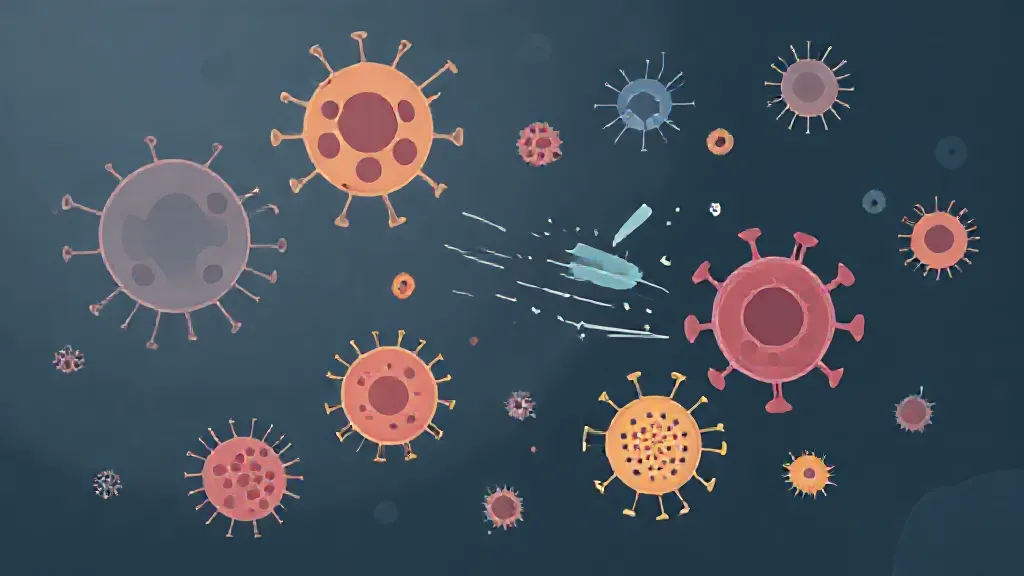The immune system is a complex network of cells, tissues, and organs that work together to defend the body against harmful pathogens, including bacteria, viruses, fungi, and parasites. This intricate system is essential for maintaining health and preventing infections. The immune response can be categorized into two main types: innate immunity and adaptive immunity, each playing a crucial role in the body’s defense mechanisms.
Understanding Innate Immunity
Innate immunity is the body's first line of defense against pathogens. It is a non-specific response that is activated immediately or within hours of an antigen's appearance in the body. Key components of innate immunity include physical barriers such as the skin and mucous membranes, as well as immune cells like macrophages, neutrophils, and natural killer cells.
These components recognize and respond to common features of pathogens, allowing for a rapid response to infections.
The Role of Inflammatory Response
When pathogens breach the physical barriers, the body initiates an inflammatory response. This process involves the release of signaling molecules called cytokines, which attract immune cells to the site of infection.
The increased blood flow and permeability of blood vessels allow immune cells to migrate to the affected area, where they can engulf and destroy pathogens. Inflammation is characterized by redness, heat, swelling, and pain, which are signs of the body’s immune response working to contain the infection.
Adaptive Immunity: A Targeted Response
Unlike innate immunity, adaptive immunity is a specific response that develops over time.
It involves the activation of lymphocytes, which include B cells and T cells. B cells produce antibodies that specifically target antigens on pathogens, neutralizing them or marking them for destruction. T cells, on the other hand, can directly kill infected cells or help coordinate the immune response.
This targeted approach allows the immune system to remember previous infections and respond more effectively upon re-exposure.
The Importance of Antibodies
Antibodies play a critical role in the immune response. These proteins are produced by B cells and can recognize specific antigens on pathogens.
Once bound to their target, antibodies can neutralize toxins, prevent pathogens from entering cells, and facilitate their destruction by other immune cells. The process of antibody production and the formation of memory B cells are essential for long-lasting immunity, as seen in vaccinations.
The Memory of the Immune System
One of the remarkable features of the adaptive immune system is its ability to remember past infections.
After an initial exposure to a pathogen, memory cells are formed, allowing the immune system to mount a quicker and more robust response upon subsequent encounters. This memory is the basis for the effectiveness of vaccines, which introduce a harmless component of a pathogen to stimulate the immune system without causing disease.
Challenges to the Immune System
While the immune system is highly effective, it is not infallible.
Various factors can compromise its ability to fight infections, including age, nutrition, stress, and underlying health conditions. Additionally, some pathogens have evolved mechanisms to evade the immune response, such as altering their surface proteins or producing substances that inhibit immune function. Understanding these challenges is crucial for developing effective vaccines and treatments.
The Future of Immunology
Research in immunology continues to advance our understanding of how the immune system functions and how it can be harnessed to combat diseases. Innovations such as immunotherapies, which utilize the body's immune response to treat cancer, and personalized vaccines are at the forefront of medical research. As we learn more about the immune system, the potential for improving health outcomes and developing new therapies grows.
Conclusion: The Immune System's Vital Role
In summary, the immune system is a sophisticated defense network that plays a vital role in protecting the body from infections. By understanding the mechanisms behind innate and adaptive immunity, we can appreciate the complexity of the immune response and the importance of maintaining a healthy immune system. Ongoing research will undoubtedly lead to new insights and advancements in immunology, enhancing our ability to fight infections and improve public health.
